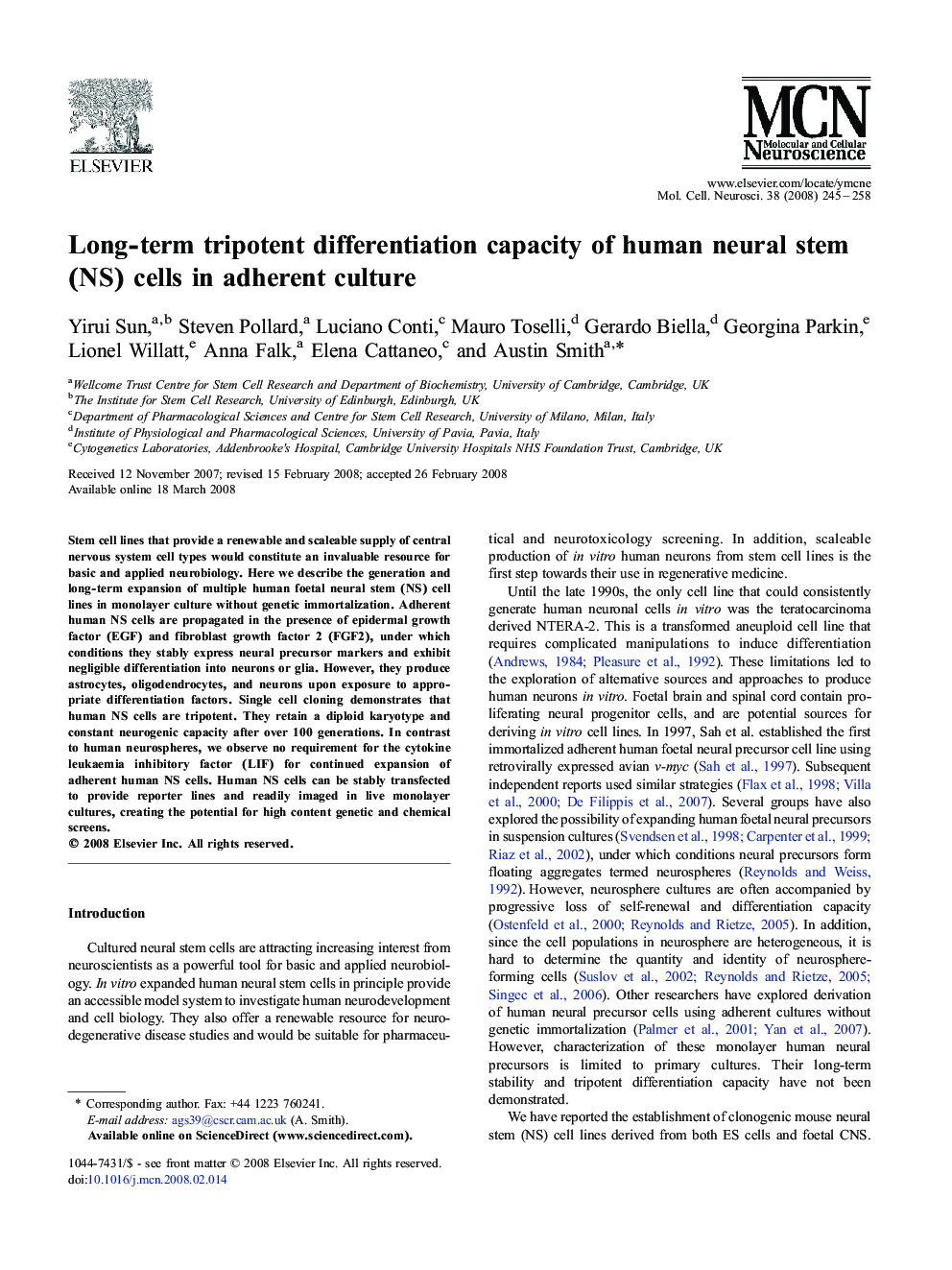| کد مقاله | کد نشریه | سال انتشار | مقاله انگلیسی | نسخه تمام متن |
|---|---|---|---|---|
| 2199110 | 1099426 | 2008 | 14 صفحه PDF | دانلود رایگان |

Stem cell lines that provide a renewable and scaleable supply of central nervous system cell types would constitute an invaluable resource for basic and applied neurobiology. Here we describe the generation and long-term expansion of multiple human foetal neural stem (NS) cell lines in monolayer culture without genetic immortalization. Adherent human NS cells are propagated in the presence of epidermal growth factor (EGF) and fibroblast growth factor 2 (FGF2), under which conditions they stably express neural precursor markers and exhibit negligible differentiation into neurons or glia. However, they produce astrocytes, oligodendrocytes, and neurons upon exposure to appropriate differentiation factors. Single cell cloning demonstrates that human NS cells are tripotent. They retain a diploid karyotype and constant neurogenic capacity after over 100 generations. In contrast to human neurospheres, we observe no requirement for the cytokine leukaemia inhibitory factor (LIF) for continued expansion of adherent human NS cells. Human NS cells can be stably transfected to provide reporter lines and readily imaged in live monolayer cultures, creating the potential for high content genetic and chemical screens.
Journal: Molecular and Cellular Neuroscience - Volume 38, Issue 2, June 2008, Pages 245–258